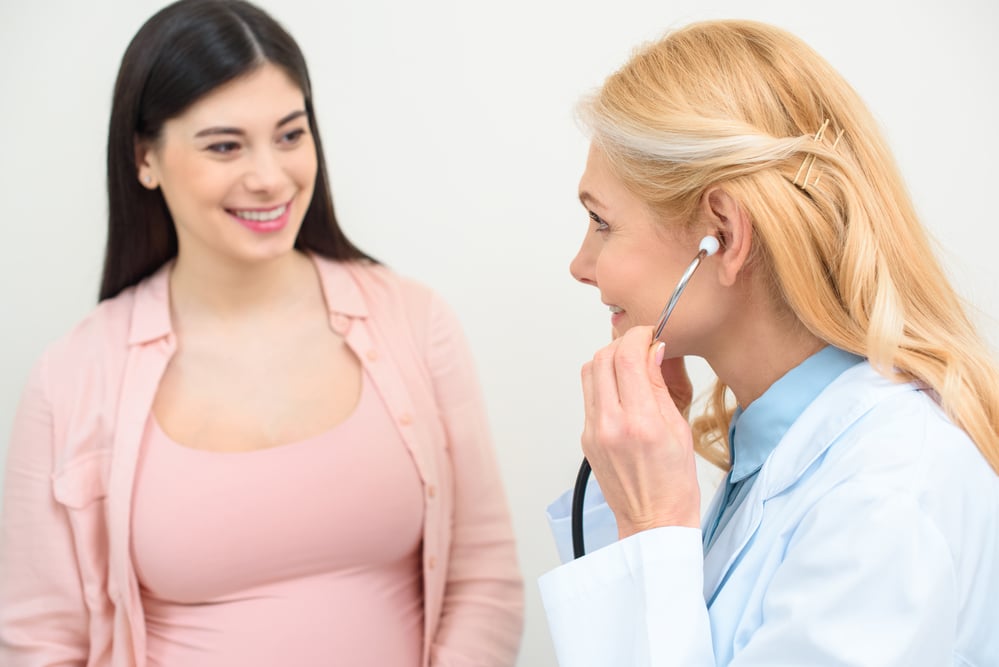Low Estrogen in Women
- What Causes Low Estrogen?
- What Is Menopause?
- Symptoms of Low Estrogen and Menopause
- Perimenopause
- Low Estrogen and Menopause Can Start Early
- Low Estrogen Can Cause Weight Gain
- PCOS, Low Estrogen, and Weight Gain
- What’s Distinct About Low Estrogen Weight Gain?
- Weight Changes—What’s the Root Cause?
- Low Estrogen and Low Sex Drive (Libido)
- Low Sex Drive in Women—When Should You Be Concerned?
- Changes in Life Circumstances Affect Sex Drive
- Hormone Changes Can Affect Sex Drive
- Low Estrogen and Lifestyle
- Treatment for Low Estrogen
- If You’ve Been Diagnosed With Low Estrogen, You May Have Been Misdiagnosed
- Bioidentical Hormones: Do They Matter?
- Schedule an Estrogen Replacement Therapy Consultation
What Causes Low Estrogen?
Low estrogen in women is usually a manifestation of female hypogonadism.
Generally speaking, “hypogonadism” is a condition in which the sex glands that produce crucial sex hormones are not getting their job done, leading to a hormone imbalance (and its debilitating symptoms).
In men, hypogonadism most commonly presents as low testosterone, but female hypogonadism is the direct result of the ovaries failing to produce sufficient estrogen, progesterone, or even testosterone to maintain overall health and well-being.
Talk to a TRT expert and get back to feeling the way you're supposed to.
Now serving patients in all Texas cities.
What Is Menopause?
Unlike men, women usually experience hypogonadism and its resulting low estrogen levels as part of the natural (yet often unpleasant) aging process known as menopause, a period of life where women experience well-defined hormonal fluctuations as the ovaries produce less and less estrogen.
Unfortunately, menopause (which is the ending of your period) is basically unavoidable.
As a woman, you are born with a set number of eggs—your body won’t produce more.
When those eggs run out, your body begins menopause (though it can also be induced by various types of trauma, surgery, or even medications).
As part of the menopause process, your ovaries drastically reduce their estrogen production (if they don’t eliminate it outright).
This can have a profound effect on your well being.
Symptoms of Low Estrogen and Menopause
The drop in estrogen production due to menopause doesn’t mean you’re definitely going to experience symptoms, or that your estrogen levels are going to dive below normal.
Some women stay within a normal range.
However, it is quite common for estrogen levels to fall below normal and cause the well-known symptoms of female hormone imbalance, including:
- Mood changes, depression, and anxiety
- Hot flashes
- Low libido (decreased sex drive)
- Fatigue
- Insomnia or interrupted sleep
- Irritability
- Ovarian cysts
- Worsening premenstrual syndrome
- Irregular or heavy periods
- Changes in appetite or digestive issues
- Urinary difficulties, including urgency or leakage
- Breast tenderness
- Unexplained weight gain or weight loss
- Vaginal dryness
- Hair loss or hair thinning
It’s important to note that these symptoms are common to a variety of hormone imbalances in women. They may not improve after menopause has ended.
Menopause is actually broken down into two indistinct stages: perimenopause and full menopause.
Talk to a TRT expert and get back to feeling the way you're supposed to.
Now serving patients in all Texas cities.
Perimenopause
Perimenopause describes the earlier transitional periods of menopausal change that are marked by up-and-down fluctuation of ovarian hormone production (including estrogen, progesterone, and testosterone) and the onset of symptoms commonly associated with menopause.
You may experience one or a combination of symptoms, and they’ll likely come and go as estrogen levels rise and fall erratically.
Talk to a TRT expert and get back to feeling the way you're supposed to.
Now serving patients in all Texas cities.
What Age Does Perimenopause Start?
Perimenopause means “around menopause,” so it often presents as a slow, steady march toward the end of estrogen production, accompanied by a gradual onset of menopausal symptoms.
Research gives us an estimated age range: Menopause generally begins when you are in your late 40s or early 50s, though you can begin to experience symptoms of low estrogen or other hormone imbalances much earlier in life.
It’s difficult to predict. There’s just no hard line or specific symptom that announces a change in your body. That’s the fluid nature of this transitional period.
Talk to a TRT expert and get back to feeling the way you're supposed to.
Now serving patients in all Texas cities.
How Long Does Perimenopause Last?
The rough estimate is 4 years, but some women experience symptoms gradually, so it can be spread over as many as 10 years.
Every woman’s body is different.
Other women may only spend a short time in this transitional period—as little as 6 months.
When Does Perimenopause End?
Technically speaking, perimenopause is over when eggs are no longer released and menstruation ends.
More commonly, a woman is considered to have entered menopause when she has not had a menstrual period for 12 consecutive months.
Eventually, a sharp decline in estrogen and other hormone production centered in your ovaries brings on further symptoms, which is the accepted indicator that full menopause has begun.
Talk to a TRT expert and get back to feeling the way you're supposed to.
Now serving patients in all Texas cities.

Low Estrogen and Menopause Can Start Early
There’s a troubling trend researchers have uncovered—more and more women are experiencing female hypogonadism and symptoms related to hormone imbalance much earlier than previous generations.
In other words, pre-menopausal women have far lower-than-normal estrogen (and other hormone) levels long before the actual beginning of the menopausal process.
Some of the causes of premature female hypogonadism include:
- Surgical ovarian removal
- Ovarian failure due to chemotherapy drugs or other drugs
- Loss of menstrual periods in a woman before menopause
- Early menopause (before the age of 40)
- Chemical or radiation exposure
- Down syndrome
- Obesity
- Hypothalamic disease
- Pituitary tumors, hypopituitarism, or hyperprolactinemia
- Adrenal insufficiency
- Diabetes
- Opioid medications, alcoholism, or drug addiction
- Hemochromatosis
- Sickle cell anemia
A strong word of caution: Because the symptoms of female hypogonadism, menopause, and resulting low estrogen levels often overlap with other, more serious illnesses, it’s critical that you speak with a professional and get your hormone levels tested to determine the exact nature of the problem.
Talk to a TRT expert and get back to feeling the way you're supposed to.
Now serving patients in all Texas cities.
Low Estrogen Can Cause Weight Gain
For starters, estrogen plays a significant role in controlling food intake, body-weight distribution, glucose metabolism, and insulin sensitivity—all important factors affecting weight loss or gain.
When endocrine processes are operating correctly and are in balance, controlling your weight may be easier than if they are out of balance.
In fact, the weight gain (and weight retention) often seen in postmenopausal women is likely attributed to the particularly drastic reduction in estrogen that results when the ovaries cease ovulation (menopause).
There are several studies supporting this conclusion, as well.
Talk to a TRT expert and get back to feeling the way you're supposed to.
Now serving patients in all Texas cities.
PCOS, Low Estrogen, and Weight Gain
PCOS stands for polycystic ovary syndrome, a condition where many small cysts develop on women’s ovaries. PCOS often results in hormonal imbalances, including low estrogen.
Along with irregular menstrual cycles, weight gain is a serious condition associated with PCOS, and if left untreated, may result in diabetes or heart conditions.
In summary, common weight gain in menopause and PCOS, both linked to low estrogen, further supports the overall link between low estrogen and obesity.
Talk to a TRT expert and get back to feeling the way you're supposed to.
Now serving patients in all Texas cities.
What’s Distinct About Low Estrogen Weight Gain?
If you’re experiencing low estrogen, you might find that your figure has changed, that you’re carrying more weight around the midsection rather than the hips and thighs.
There are two common patterns of fat distribution that result in two distinct body shapes, or figures, and each pattern is typically associated with a particular gender.
The female figure is characterized by “gynoid fat distribution,” meaning weight is carried in the thighs and glutes, typically described as a pear shape.
“Android fat distribution,” on the other hand, is characterized by weight carried around the abdomen and midriff, higher on the skeletal structure, and is commonly associated with men’s bodies.
This is usually described as an apple shape, rather than a pear shape.
What’s often seen in women suffering from low estrogen, characteristic of postmenopausal women and those with PCOS, is the shift from the feminine pear shape to a more masculine apple shape.
Fat begins to accumulate around the abdomen, as you might see in a man, rather than in the areas to which you’re used to fat accumulating—not a particularly welcome change for most women.
Talk to a TRT expert and get back to feeling the way you're supposed to.
Now serving patients in all Texas cities.
Weight Changes—What’s the Root Cause?
A review of the available literature concluded that it was low estrogen, and not menopause itself, that led to increased abdominal obesity following menopause.
What this means is that low estrogen in any woman, not just in women who have experienced menopause, is going to lead to weight gain.
Other hormones are involved as well, including testosterone, which is something we often treat in women.
The most effective treatment for weight gain associated with low estrogen or low testosterone is hormone replacement therapy.

Low Estrogen and Low Sex Drive (Libido)
Low sex drive in women (also known as low libido) can certainly be concerning. For some women, it can be downright debilitating.
However, low hormones are not the only possible cause of a low sex drive.
This symptom can be caused by various physical and emotional difficulties, which should be ruled out before launching into estrogen or other hormone replacement therapies.
The important question to ask is whether you’ve noticed a significant change in your personal level of sexual interest, possibly indicating a deeper problem.
Talk to a TRT expert and get back to feeling the way you're supposed to.
Now serving patients in all Texas cities.
Low Sex Drive in Women—When Should You Be Concerned?
The following are symptoms of low sex drive, as reported in an article by the Mayo Clinic:
- Little-to-no interest in any type of sexual activity, including self-stimulation
- Very infrequent or total lack of sexual fantasies
- Experiencing concern or worry over lack of sexual interest
Low sex drive is highly subjective. There is no level that can be considered normal, but the near-or-complete absence of sexual interest would be worrisome, as would a noticeable reduction in libido.
The last point is key—if you’re concerned, that probably means you’ve noticed a recent decrease in your libido compared to the level you’re used to experiencing.
Changes in Life Circumstances Affect Sex Drive
If you’ve noticed such a change in the level of sexual desire (libido) you consider normal for yourself, review your current physical, emotional, and mental wellbeing.
These are some questions you could ask to narrow down potential causes.
Some physical health issues that might cause low libido include:
- Chronic pain
- Diabetes
- Rheumatoid arthritis
- Lupus
- Cancer of various types
- Lung disease leading to shortness of breath
Various prescription medications may also contribute to lower libido, a potential factor that’s often overlooked and that you should discuss with your medical provider.
Talk to a TRT expert and get back to feeling the way you're supposed to.
Now serving patients in all Texas cities.
Significant Emotional Events
Emotional highs and lows can definitely impact one’s desire for sexual activity.
The stress that commonly accompanies significant life events, including personal tragedy, can preoccupy or distract us, limiting our ability to feel positive emotions, recognize our own needs, or experience our personal desires.
Relationship Issues
You might consider whether you’re experiencing dissatisfaction or feeling insecure about the relationship you’re in.
Relationship dynamics potentially affecting sex drive include:
- Communicating poorly
- Suspecting a lack of trust
- Experiencing broken trust
- Enduring prolonged and unresolved conflicts
Talk to a TRT expert and get back to feeling the way you're supposed to.
Now serving patients in all Texas cities.
Mental Health Issues
Fatigue, anxiety, stress, or depression, in milder and more severe cases alike, can cause low sex drive in both women and men.
When you’re feeling out of sorts, feeling overwhelmed, or experiencing low self-esteem, the idea of sharing a sexual experience with another person may not appeal to you.
Body image issues, particularly negative feelings surrounding weight gain or other physical changes, can also lead to low sex drive.
Hormone Changes Can Affect Sex Drive
If none of those life circumstances or health concerns seem relevant, hormones may be the culprit.
We know that low estrogen, whatever its cause, can result in low libido.
Low testosterone is also quite common in women, and it presents many of the same symptoms as low estrogen.
Simply put, your hormones could be out of balance in some way, leading to a variety of symptoms that include decreased libido.
The most important question is whether your current level of sexual desire is a concern to you.
There is no baseline “normal” to compare with. The only thing that matters is whether you’re satisfied with how you feel.
It’s an entirely subjective and personal matter.
Talk to a TRT expert and get back to feeling the way you're supposed to.
Now serving patients in all Texas cities.
Low Estrogen and Lifestyle
As with many other health concerns, the first step you could take to relieve minor symptoms of low estrogen and other hormone imbalances is to improve your overall health.
Staying active and adjusting your diet are crucial components of a more stable hormonal balance.
First, try lowering the fat content of your regular diet.
You might also consider increasing fiber with more fruits, vegetables, and calcium-rich foods. Also, consider talking with your doctor about calcium and vitamin D supplementation.
You should also be aware of foods that may trigger those uncomfortable hot flashes. Common culprits are spicy foods and hot beverages (like tea and coffee).
Regular exercise, even light workouts or walking, can help stabilize hormones and resist the bone density loss that can accompany low estrogen.
But, when you set out to become more active, you’ll need to listen to your body. Overdoing it can lead to an increase in stress hormones and worsen your hormonal health.
Proper nutrition and exercise can also help you fight the common weight gain associated with menopausal changes.
Talk to a TRT expert and get back to feeling the way you're supposed to.
Now serving patients in all Texas cities.
Treatment for Low Estrogen
If diet and exercise are proving ineffective and your symptoms continue to give you problems, then having your hormone levels checked might be the first step to feeling better again.
For some women, levels dip so low that estrogen replacement therapy (ERT) might be necessary.
The first step in ERT would be to assess your individual, baseline hormone levels to discover in what way your hormone levels are out of balance.
Then, we determine the proper course of treatment, paying specific attention to the accurate dosing of needed hormones.
Although there are a variety of options for administering supplementary estrogen during ERT, we recommend a topical medication (a gel or cream), which we’ve found to be both safe and effective.
While injections are what we recommend for testosterone, topical, daily estrogen and progesterone offer a hormonal environment most similar to natural production.
Oral and injectable forms of these medications are still options.
When we recommend hormone replacement therapy, we’re looking to improve your overall hormonal balance. There may be abnormalities in progesterone and testosterone in addition to estrogen deficiencies.
Talk to a TRT expert and get back to feeling the way you're supposed to.
Now serving patients in all Texas cities.
If You’ve Been Diagnosed With Low Estrogen, You May Have Been Misdiagnosed
The primary reason women come to our clinics is that they are seeking relief from symptoms they believe to be caused by menopause or perimenopause, which are usually related to low estrogen.
However, low testosterone can also cause symptoms that strongly resemble commonly diagnosed low levels of estrogen.
The best course of action when symptoms occur is to get your hormones checked by a medical professional.
With that concrete information in hand, your healthcare provider can design a treatment plan that’s tailored to meet your body’s specific needs.
The key to relief from the symptoms of hormone imbalance is to bring your hormones back into harmony with each other, which requires an accurate blood test to determine your current levels.
Click here for more information on low testosterone in women.
Talk to a TRT expert and get back to feeling the way you're supposed to.
Now serving patients in all Texas cities.
Bioidentical Hormones: Do They Matter?
Research has shown that estrogen replacement therapy and progesterone replacement therapy tend to work best when administered through bioidentical topical gels.
Bioidentical means that the hormones produced for use in hormone replacement therapy are formulated to closely match your body’s natural hormones, increasing both safety and effectiveness.
The exception to the bioidentical rule is testosterone—bioidentical mixtures have not been found to be any safer or more effective than the standard FDA-approved versions.
Schedule an Estrogen Replacement Therapy Consultation
The goal of treatment is to help you feel like yourself again.
We have flexible hours and multiple clinics throughout the DFW area, allowing you to get your dose at a time and place that fits into your schedule.
Talk to a TRT expert and get back to feeling the way you're supposed to.
Now serving patients in all Texas cities.


